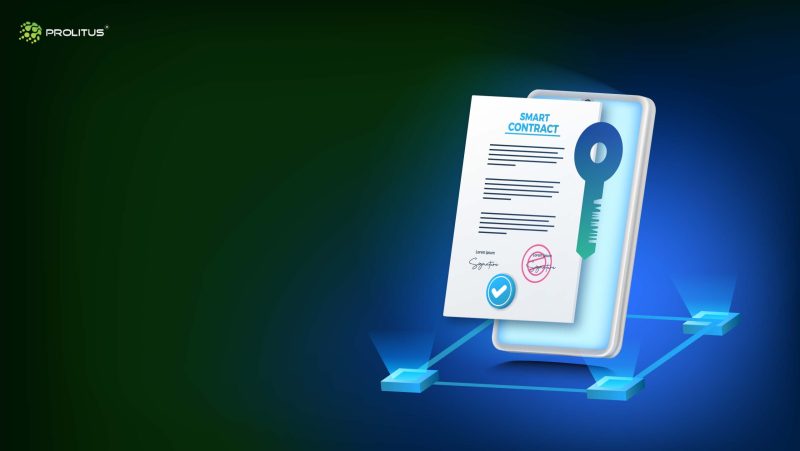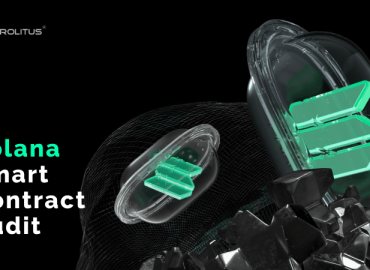Bitcoin and Ethereum are two cryptocurrencies popular among individuals. They are well known even among those who do not have any connection to Fintech or IT. Industries and businesses are coming forward to adopt blockchain technology as it possesses a revolutionary technology – smart contracts – that focuses entirely on decentralized finance.
According to estimates, the market size of smart contracts will reach more than USD 770 million by 2028. It indicates that the number of entrepreneurs willing to create smart contracts will grow exponentially in the upcoming years. Smart contracts are long lines of code that run automatically after meeting certain conditions. They remain without any human intervention and work efficiently. Let’s understand smart contracts in detail and how we can develop smart contracts for our use.
What are Smart Contracts?
Consider an analogy where you have legal documents that bind you to perform specific work. The work or commitment is written inside the document that binds/obliges all the contractors. Similarly, a smart contract binds the parties to perform specific tasks. The contract lives inside a blockchain and automates the process for all individuals.
A smart contract contains positive and negative outcomes that tell it to perform specific tasks if the event is successful. It is more like an “if/else” program. For example, if you plan to sell your car via a smart contract, it will contain requirements (e.g., insurance, registration certificate, driving license, etc.) that will trigger the payment from other people. If both parties agree, the smart contract will transfer the ownership in seconds without human intervention.
What are the Benefits of Using Smart Contracts?
Smart contracts offer a range of benefits to businesses and individuals. Shortly, every business owner would choose a decentralized deal due to the benefits and quick approval. Let’s read about the standard perks smart contracts offer.
Transparency: Blockchain applications offer 100% transparency where no one can alter the information put on the system. Hence, a business owner can make a smart contract without any fear. Security: Smart contracts are known for data protection because the lack of human factors helps to build trust between parties and develop robust and long-lasting business relations. Blockchain-based agreements are one of the safest ways to create an arrangement nowadays. Cost-effectiveness: The system will perform various manual processes automatically and save a lot of money for entrepreneurs, which they would have to spend on intermediaries. Time saving and autonomy: Smart contracts are implemented instantly after meeting the pre-defined conditions. It saves a lot of time for both parties. Since the network controls the execution of a blockchain-based agreement, parties do not have to depend on an intermediary to conduct the process.
How to Make a Smart Contract
By now, you should know what smart contracts are, their uses, and the benefits they provide to individuals. Now let’s read about the development process of how we can create a smart contract.
Choose the Right Platform
It is essential to choose a platform that will allow smart contract creation. We have crafted a list of platforms that will help you with decision-making.
Ethereum is the most trusted platform used to create smart contracts. Developers love Ethereum as it has its own programming language — Solidity, which significantly reduces the time and effort needed for contract development. Bitcoin: Only a few people know that Bitcoin offers a smart contract platform via Rootstock (RSK). It is “the safest in the world” as it retains the qualities of the Bitcoin network. Solana: Although Ethereum is popular, Solana has multiple advantages that catch the developers’ attention. A developer can make a smart contract using C or Rust. Also, it helps resolve the scalability issue as it supports more than 60,000 transactions per second.
Select the Tools
It is essential to select the best tools for building a smart contract. We have carefully selected the platforms and tools you can use to develop smart contracts. You can choose Solidity, C++, C, Javascript, Go, Rust, etc., as your programming languages to code the smart contract. Visual Studio Code, Remix, or SettleMint can be your IDE to help you write and test your code.
Hardhat, Brownie, Truffle, or DappTools are the frameworks that test and deploy smart contracts. The tenets used to put the protocol in a controlled environment are Rinkeby, Kovan, Hyperledger Umbra, and Ropsten. Last, you would need a wallet such as MetaMask or Coinbase Wallet to grant access to Web3 DApps and allow the developer to interact with them easily.
Start the Development Process
As the name suggests, this stage involves developers or individuals writing the code for a smart contract. You can choose to utilize a suitable template or an open-source library. For example, OpenZeppelin helps to make a smart contract on Ethereum.
Suppose your smart contract requires additional information from a third party and off-chain resources to trigger certain conditions (e.g., calculating the wind flow at a specific time). You can use an oracle, a trusted data feed, to put the external data into the contract.
Test Your Smart Contract.
Since you cannot make changes to a smart contract once deployed, it is essential to test them to eliminate possible flaws and errors. Testnets come in handy in the testing process and depend on the blockchain. For example, Hyperledger Fabric requires Hyperledger Umbra and Ropsten for Ethereum.
Depending on the number of parties involved, you will need multiple wallets. You can add free crypto to the wallets and test the transactions using the testnet.
Deploy Your Smart Contract.
After completing all the above steps, you are ready to deploy the smart contract. It is essential to convert your contract into the .json file to add it to the blockchain. Truffle can efficiently perform the compilation.
After the compilation, you can deploy your smart contract, which will execute after meeting the predetermined conditions. However, remember that you need the actual crypto to get the ball rolling.
You can also choose the Prolitus team for building a smart contract as we provide the highest quality of service and the best practices associated with Blockchain development.
Conclusion
Smart contracts are revolutionary pieces of code that automate the entire process. However, it requires coding skills and expertise to develop a smart contract. It is also essential to be careful while deploying your smart contract as it becomes immutable. The above guide will help you understand how to build smart contracts.
We can assist with all your blockchain needs if you are new to smart contract development. We have a highly-skilled development team with an excellent portfolio and positive feedback. Prolitus will be the right platform for smart contract development or blockchain-related tech support. Get in touch with our team to get an estimate for your Blockchain projects.
Frequently Asked Questions (FAQs)
How do I write my first smart contract?
For writing a smart contract, you would need to choose the platform, select the tools, develop the smart contract, extensively test it, and finally deploy the smart contract on the blockchain.
What is a smart contract?
Smart contracts are long lines of code that run automatically after meeting certain conditions. The code and agreements exist across a distributed, decentralized blockchain network.
Is it hard to write smart contracts?
Writing a smart contract is a little challenging if you are new to this field. Developing basic smart contracts doesn't require a background in cryptography, game theory, protocol design, distributed computer networks, or anything else.





